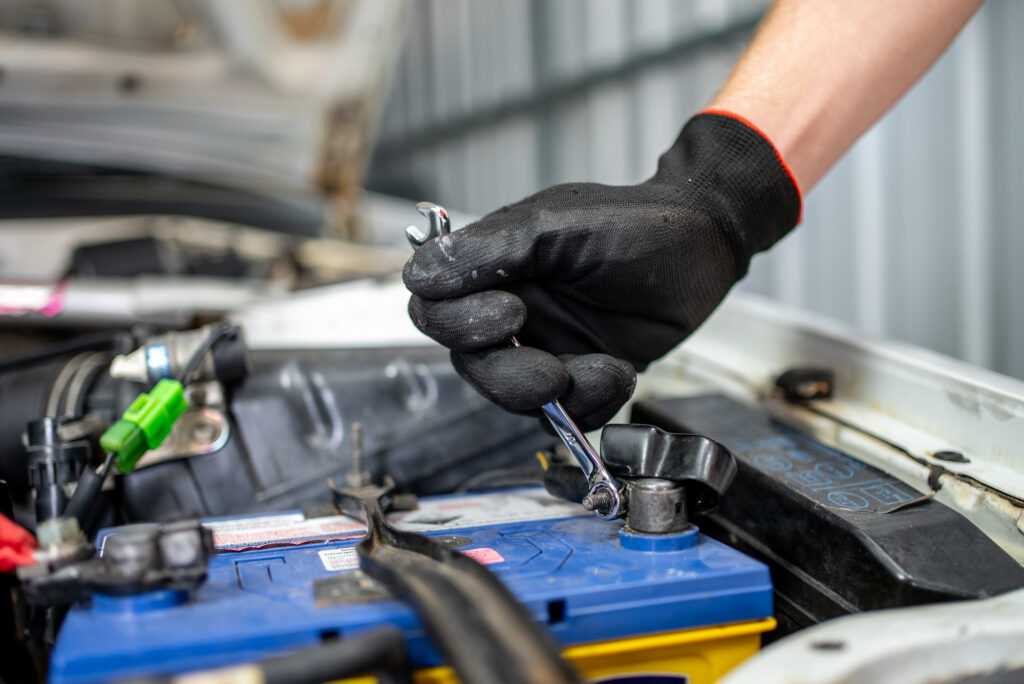When to Replace a Car Battery: Signs, Lifespan, and Maintenance Tips
No one wants to be stuck in a grocery store parking lot with a car that won’t start due to a dead car battery. So, why wait until that dreaded moment to consider a battery replacement? Your vehicle’s battery is the heart of your car—it powers the engine, electronics, and ensures everything runs smoothly. When your battery isn’t reliable, you risk being stranded at the worst time. To help you avoid that, here’s how to know when to replace your car battery and keep it performing at its best.
What Is the Average Lifespan of a Car Battery?
One of the most common questions among car owners is, “How long does a car battery last?” On average, the lifespan of a car battery ranges from 3 to 5 years. However, many factors influence battery lifespan, including:
Climate and Temperature
Extreme temperatures—hot or cold—can significantly reduce your battery’s lifespan.
- Hot climates (like Death Valley) can lead to fluid evaporation, damaging the internal components.
- Freezing temperatures (like those in Alaska or North Dakota) slow the chemical reactions needed for proper battery function.
If you live in a region with temperature fluctuations, you may need to replace your battery sooner than the average. Don’t wait for your battery to die unexpectedly schedule a battery inspection at Cheema Auto to ensure your car is equipped for your climate.

Driving Habits and Battery Usage
- Frequent short trips and excessive use of electronic accessories without running the engine can strain the battery, reducing its charge and lifespan.
- Long drives help maintain a fully charged battery.
- Vehicles that sit unused for long periods may benefit from a battery maintainer to ensure optimal performance.
If your car spends a lot of time parked or driven infrequently, taking a road trip or investing in a maintainer can extend the life of your battery.
Regular Battery Maintenance
Maintaining your car battery is essential for avoiding premature failure. Follow these battery maintenance tips:
- Inspect battery terminals for corrosion and clean them with a baking soda and water solution.
- Ensure the battery is securely mounted to prevent vibration damage.
- Check for signs of wear and cracks in the battery case.
Regular battery inspections help you spot issues early and prevent being caught off guard.
How to Troubleshoot a Car Battery
Before replacing your battery, you can try a few simple troubleshooting steps:
1. Clean and Recharge the Battery
- Clean corroded terminals using a safe solution.
- Use a car battery charger to recharge if your battery supports it.
- For a dead battery, a jumpstart followed by 2–5 minutes of charging may bring it back to life.
2. Check Battery Voltage with a Multimeter
- A healthy car battery typically reads around 12.6 volts.
- If your reading is significantly lower, it may be time to replace the car battery.
Signs Your Car Battery Needs to Be Replaced
Recognizing the warning signs of a failing battery can help you avoid getting stranded. Look out for:
- Slow engine crank: Engine takes longer to start than usual.
- Dashboard warning lights: Battery or check engine lights may signal problems.
- Dimming headlights: Especially noticeable at low speeds or while idling.
- Corroded battery terminals: A clear sign of wear and electrical resistance.
- Electrical issues: Malfunctioning radio, power windows, or dashboard lights.
- Battery age: If it’s been 3–5 years, consider replacing it—even if no issues are present.
Get a Battery Inspection at Cheema Auto Car Care Center
If your car battery keeps dying, or you’re unsure of its condition, it’s time for a professional inspection. Cheema Auto offers comprehensive battery checks to assess performance, test voltage, and ensure your battery is reliable. Taking proactive vehicle maintenance measures now can help you avoid unexpected breakdowns later.
Stay safe, drive confidently, and don’t be the person stranded in a parking lot schedule a battery check with Cheema Auto today.





